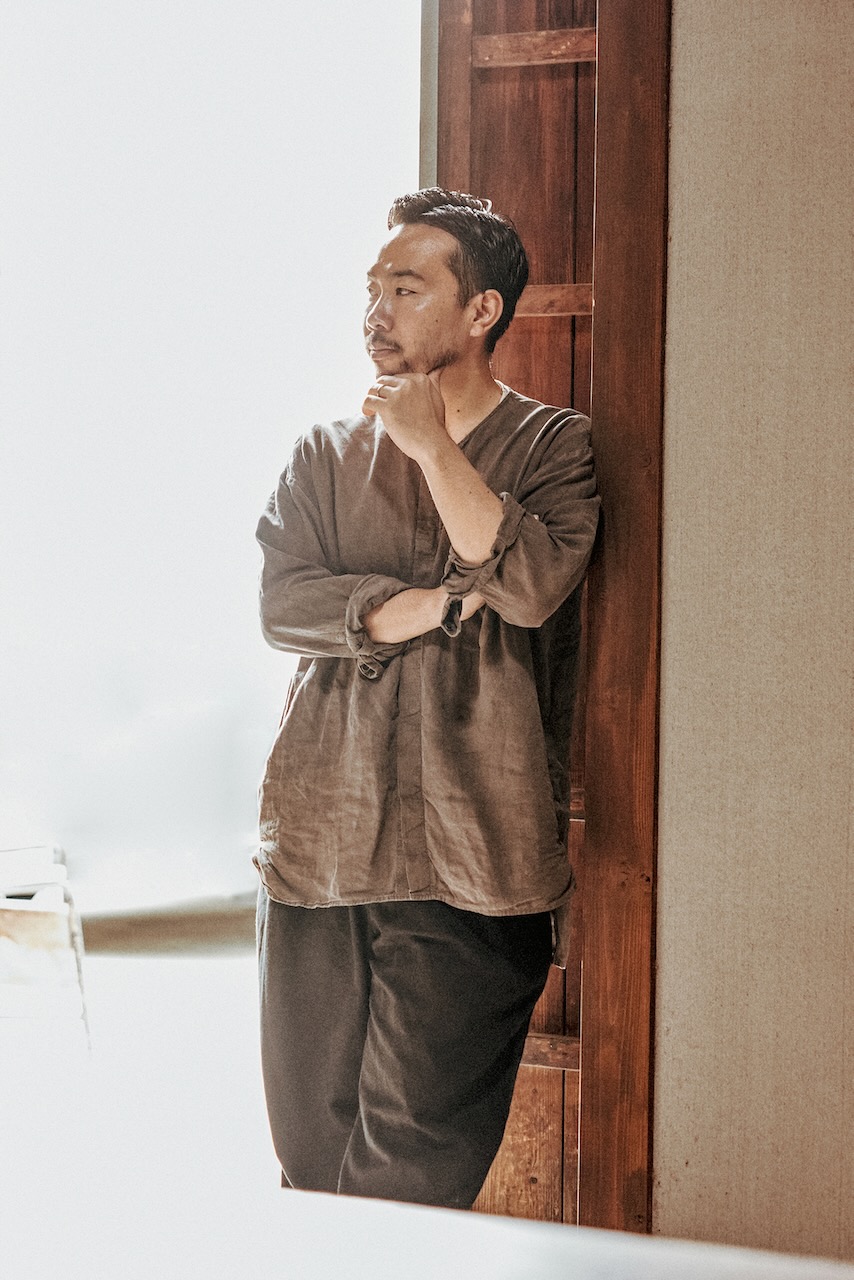
Seeking Fun while Tackling Challenges with Coffee
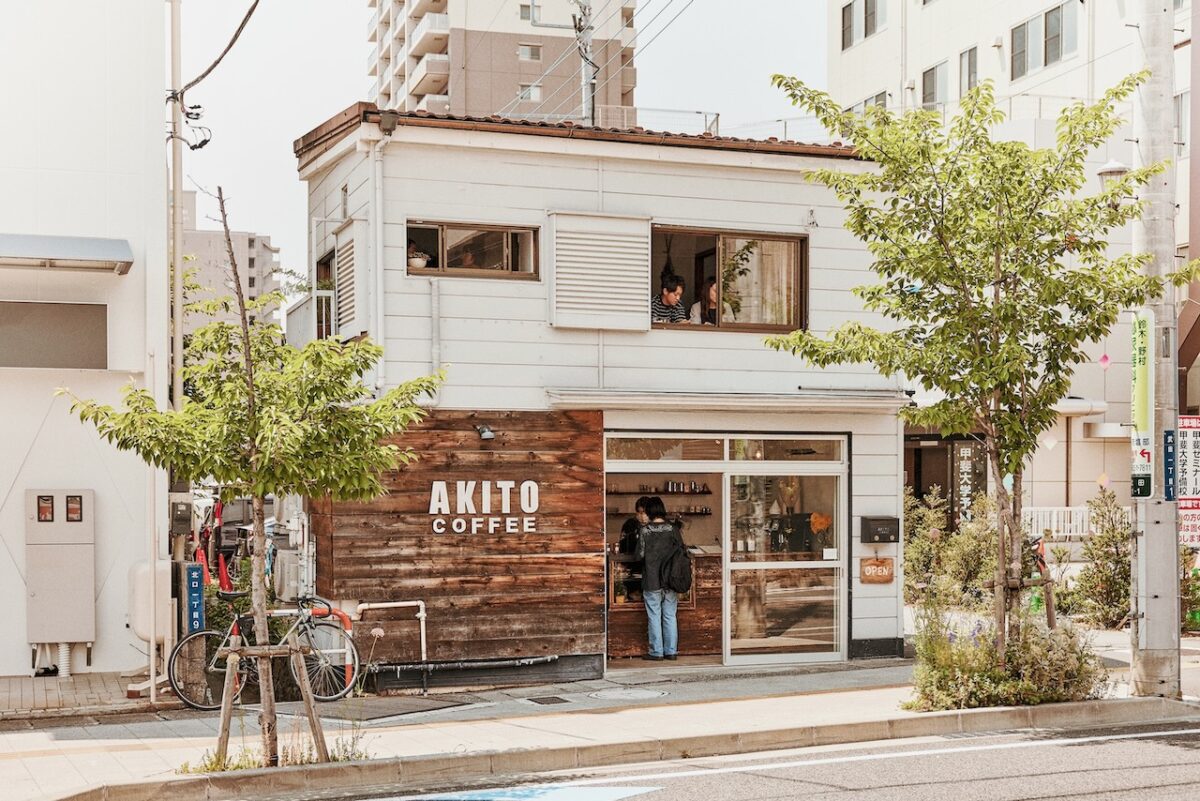
Akito Tanzawa runs AKITO COFFEE next to the Tokyo metropolis in the city of Kofu, Yamanashi prefecture. Kofu is the biggest city in the province and, while being easy to access, offers both the amenities of a major city as well as closeness to bountiful nature.
In his high school years, Tanzawa was a fervent player of baseball and dreamed of playing in the Japanese high school baseball tournament held at the Koshien Stadium. After graduating from a vocational school, he looked for something he could devote his life to and discovered coffee making. He opened his coffee shop in 2014 when he was 23. Eight years later, times have changed, and so has Tanzawa along with his shop. What are the reasons for his fervor to remain unaffected despite all these changes?
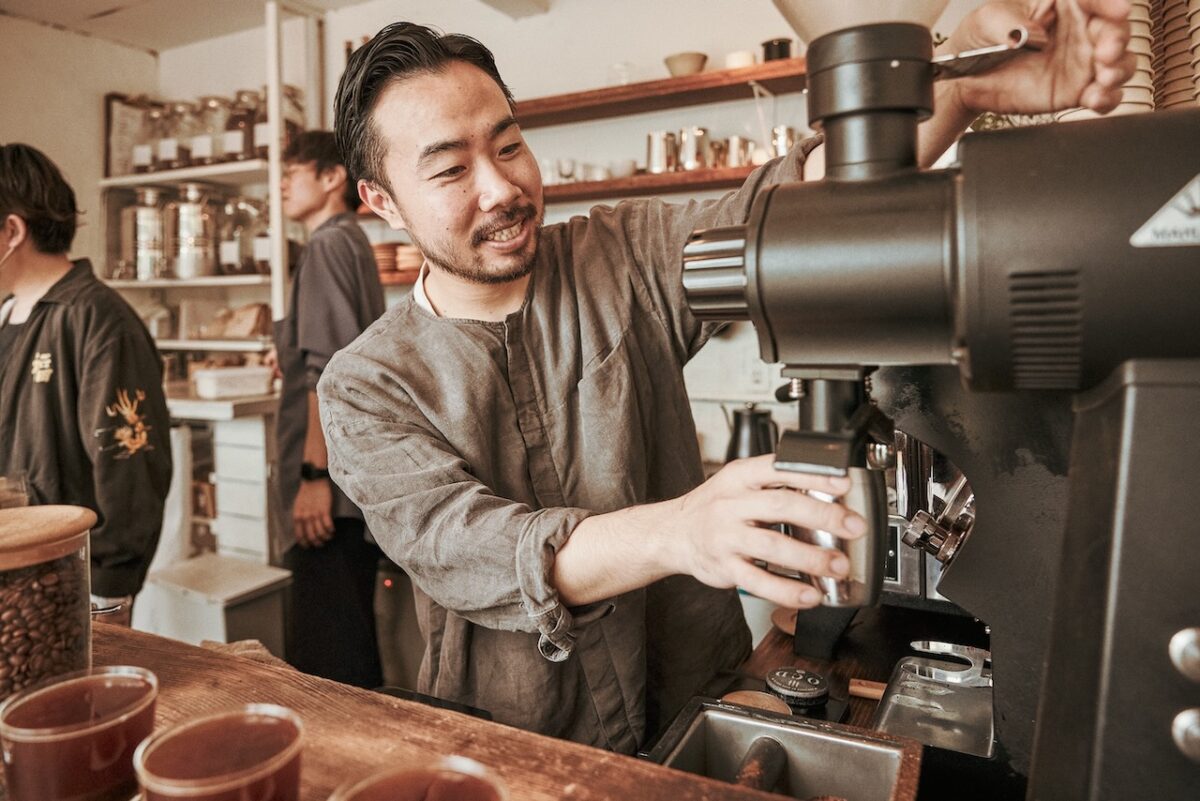
Good work starts with having fun
Tanzawa runs two stores in Kofu City: the main shop located 3 minutes’ walk from Kofu Station, and another opened in 2019 called “Tane,” located at the corner of a 150-year-old miso brewing factory’s warehouse. It functions occasionally as both a coffee roasting facility and as a coffee shop.
The main shop is designed to be small enough to be run by Tanzawa alone. The store has two stories: the counter is located on the first floor while the second floor offers about ten seats for customers. Entering the store, one finds himself right in front of the counter, at a very short distance from the staff. About 70% of the orders are for take-out as a great number of customers stop by freely as they would at a convenience store.
During weekdays 70-80% of the customers are local residents but on holidays about half of them come from the Kanto area or from Tokyo. Some customers come specifically to get coffee at AKITO COFFE while others just stop by while traveling in the region.

Tanzawa keeps his business small enough to know his staff’s hobbies and special skills on a personal basis so the shop has only 7 registered staff. The shop sells handmade sweets, organizes events on coffee and clothing, and launched a coffee club with customers. In other words, staff come up with their ideas and create their job content.
The shop isn’t what someone would consider a conventional coffee shop. The staff’s flexible ways of thinking open new opportunities. For example, the staff rent a piece of land and grow their crops, wondering what kind of coffee would be good to drink while taking a break from farm work, or what kind of coffee would fit a breakfast made of toasted bread and freshly harvested vegetables. These various activities prompted them to think about the place that coffee occupies in their daily lives from a non-professional point of view.

“Coffee is something that brings happiness to someone’s daily life. If we don’t enjoy ourselves, I don’t think our customers will either. I started AKITO COFFEE from the idea of how to live happily, so basically I don’t have a business mindset. I don’t have any specific goals, and I just go with the flow. The happiest thing for me is to maintain the feeling that everyone is having fun all the time.”

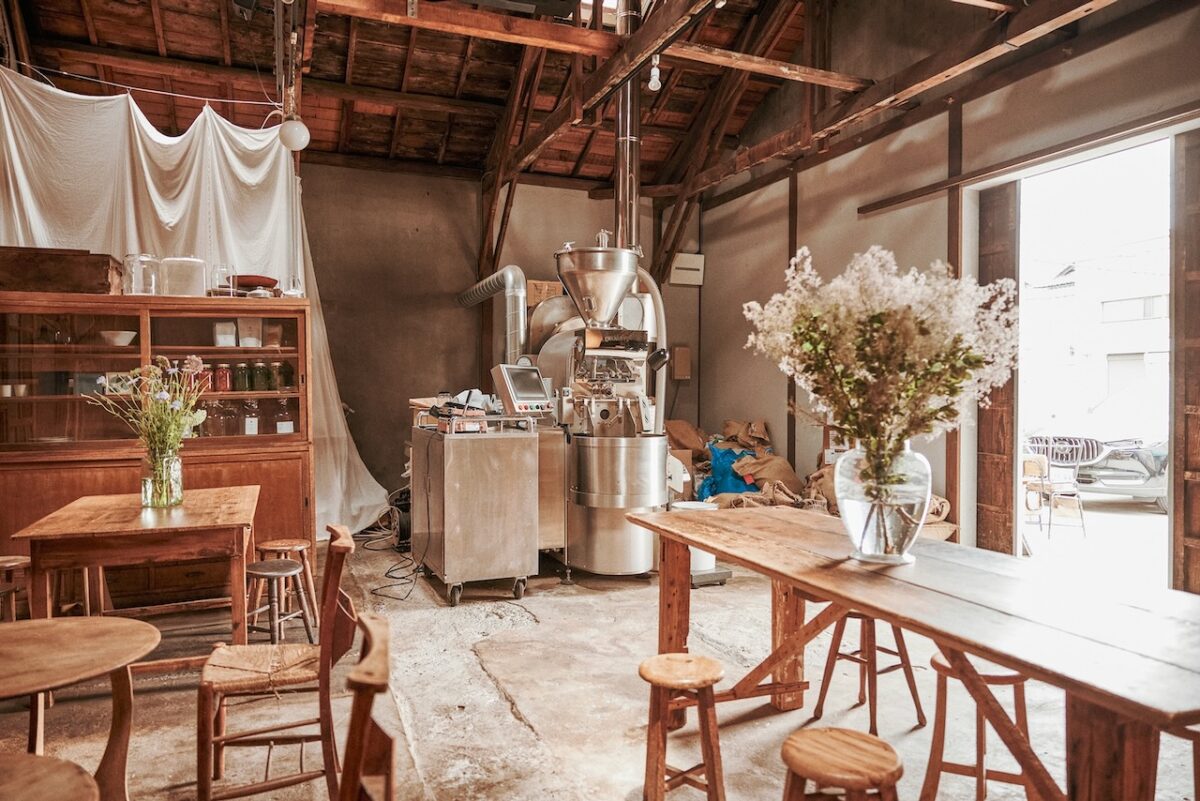
‘I wanted to be crazy about something once again’
Tanzawa’s pursuit of happiness is rooted in his school years.
From his first year of elementary school to his third year of high school, Tanzawa’s days were filled with baseball practice. He poured all his energy into baseball to the point that, when he stopped going to school (he enrolled in a school that frequented Koushien regularly,) he cut all ties with his favorite sport. To him, losing his connection with baseball was like losing the meaning of his life.
Losing his passion left him feeling lonely, he lost his energy spending idle and empty days. After recovering from his burnout, he graduated and moved to Tokyo to attend a vocational school.
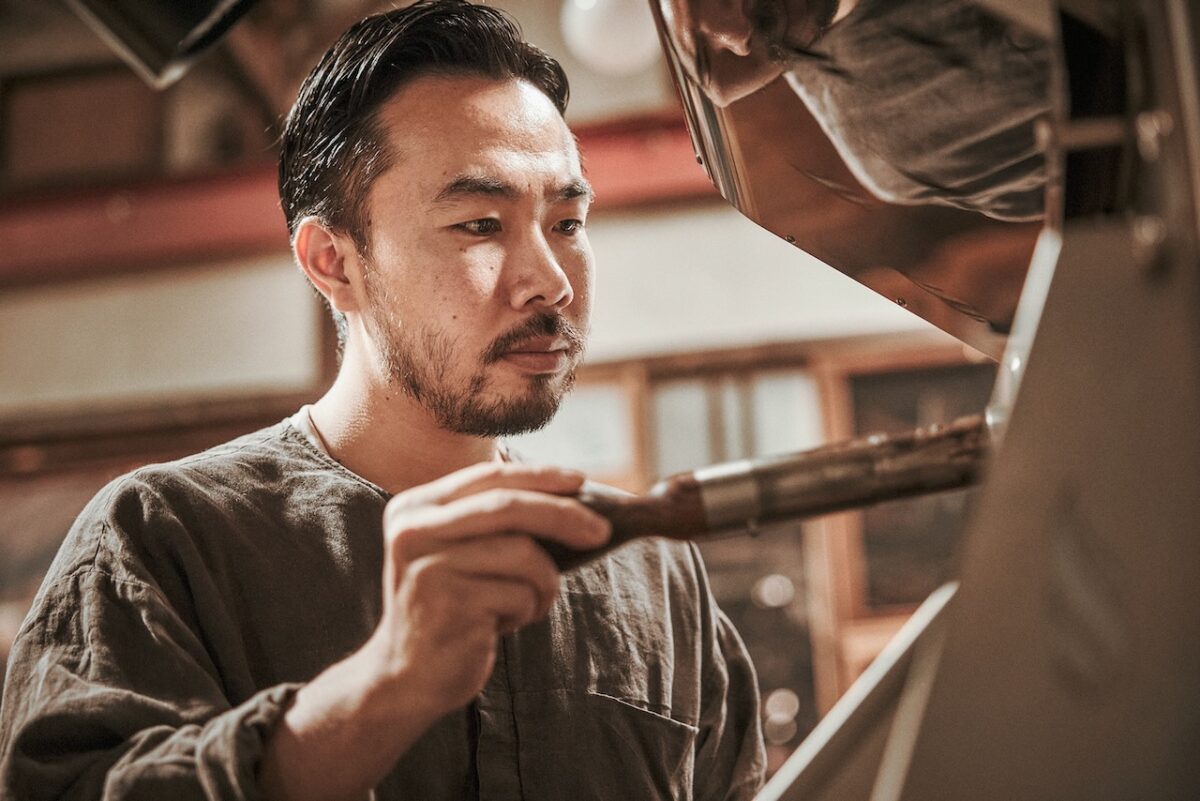
If someone does not feel like it, he isn’t going to do anything, and if it comes to having to compromise to find something to do it’s not going to get any better. Tanzawa became aware of this when he started job hunting. This prompted him to start thinking seriously about his future. He wanted to find a job that would allow him to keep dreaming his entire life.
His baseball memories from high school would always pop up in his head when he was thinking about his future. This is because he worked so hard that people gathered around him. This was a very touching experience for Tanzawa. He wondered how he could get these feelings back and, after pondering for a little while, concluded that he would like to enter “the cooking world because of its numerous opportunities to meet people.”
Once he reached this point, he took action quickly and started working part-time at a friend’s restaurant. But he soon realized he would not be able to meet his needs in a restaurant. Working in the kitchen, he lost all opportunities to meet with the shop’s few customers.
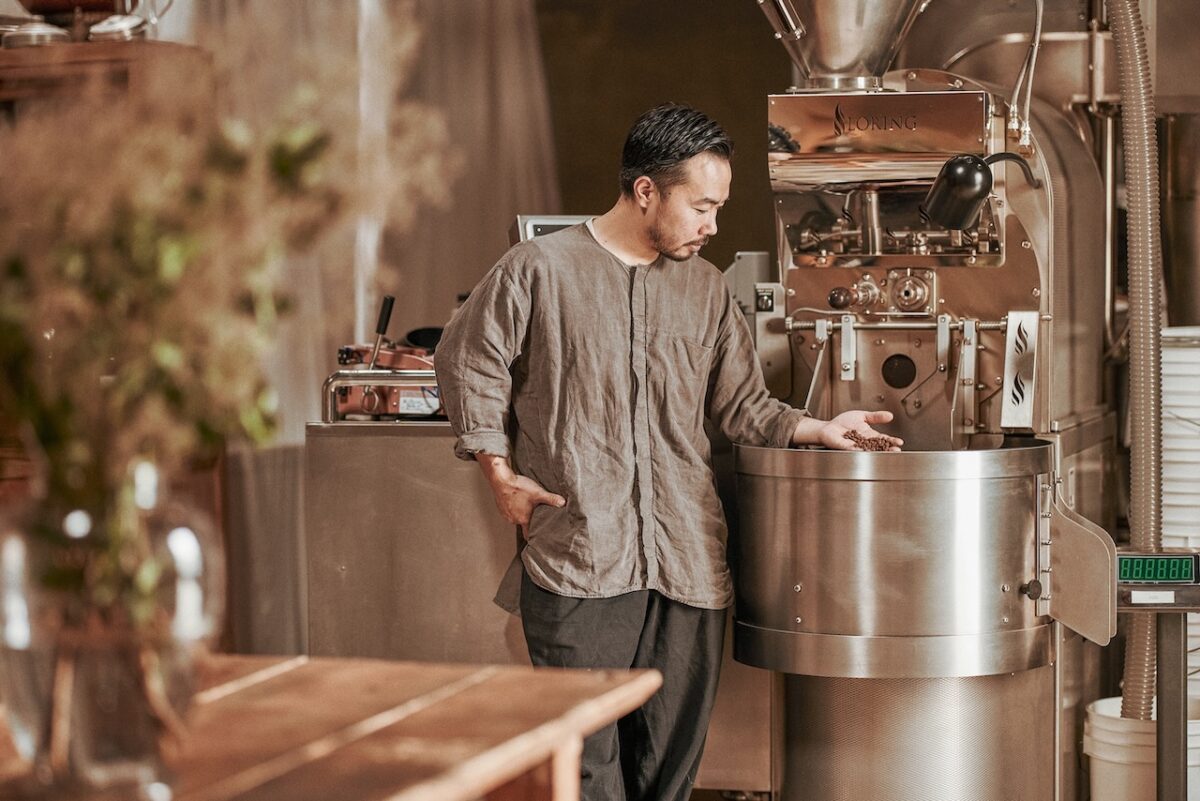
He wanted to work closer to customers, in an environment where he could engage in conversation with them freely. While his desire intensified day by day, Tanzawa gradually became interested in coffee shops. He started touring Tokyo’s coffee stands on his days off which reinforced his conviction. Through these repeated experiences, Tanzawa became familiar with the particular atmosphere of coffee shops; with the immediate closeness between staff and new customers who would start talking right off the bat; with the serious conversations between the store owner and his regulars.
Tanzawa finally experienced something close to what he had felt with baseball and brought a non-professional espresso machine to his workplace. Using a homemade colander as a hand-knitted roasting machine, he started roasting beans, learning while watching others and reading specialized handbooks. The idea of training at another coffee shop didn’t even come to his mind.
“Anyway, I wanted to open a store as fast as possible, so I chose to learn by myself. Rather than learning slowly at other stores, I thought it would be faster to gather the information I wanted from all over the world.”
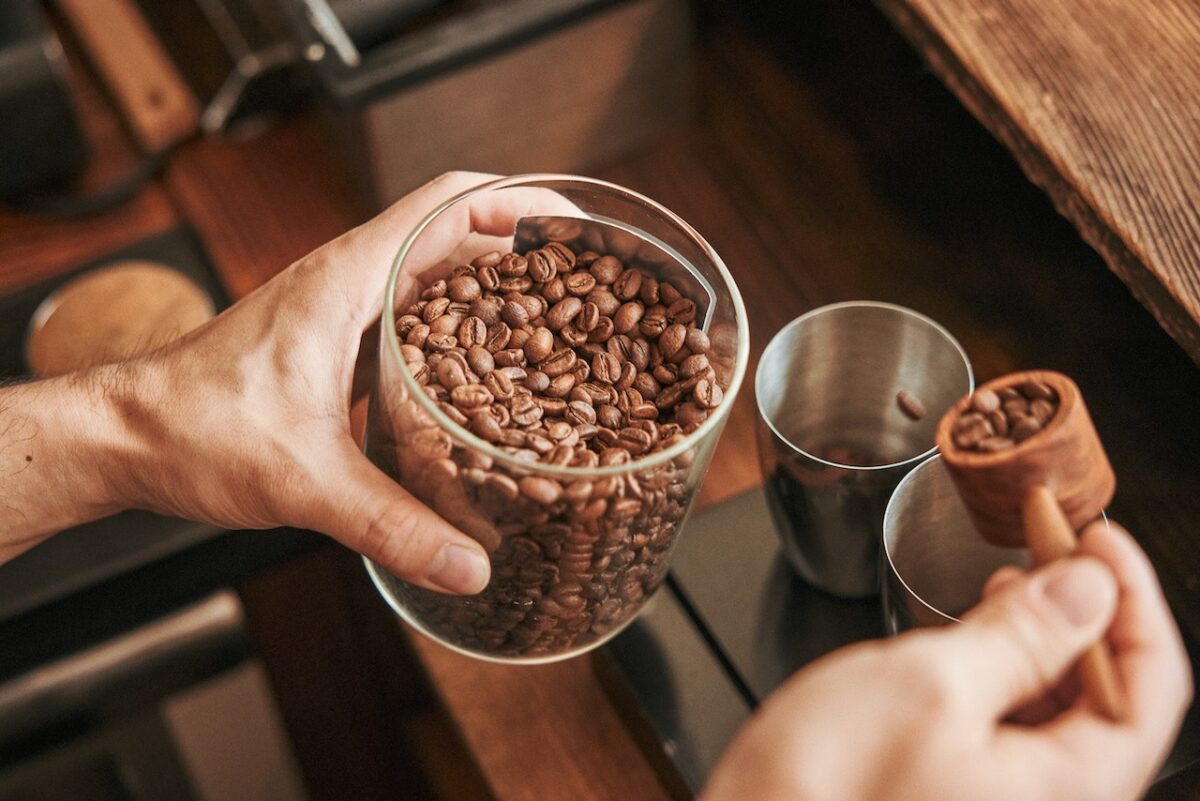
While working at a Japanese restaurant, Tanzawa declined his friend’s invitation to go out without hesitation and invested everything he had into coffee, spending tens of thousands of yen per month out of his salary to buy raw coffee beans and coffee.
“I even had my friends take over the rent of the house we shared. I just barely lived by. Like old-day comedians, I made a living relying on various people’s help.”

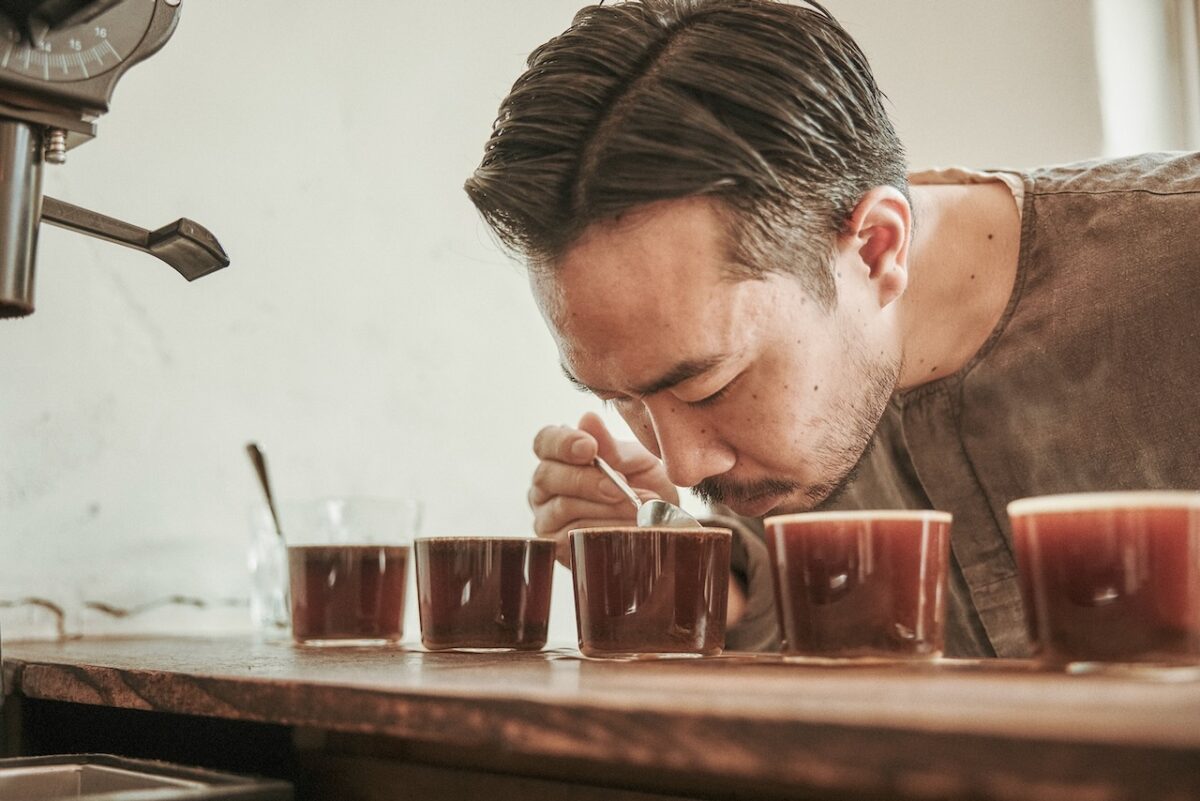
Never forget realities
Tanzawa opened AKITO COFFEE 2014 after training for 2~3 years. However, running a store was a learning process. In fact, until he opened his shop, he hadn’t even touched a coffee bean roasting machine or a professional espresso machine.
“Thinking back on those times, I had very limited skills but there were still only a few stores with this concept. So, in a sense, I was able to start a business as I liked. Finally getting a place where I could put into practice what I had learned so far made me feel very enthusiastic.”
At the time Tanzawa opened his shop, he set a 1 kg roasting machine in a space smaller than one tatami mat. When customers came, he took orders on the 1st floor, brewed coffee, and carried cups to the 2nd floor. He ran the store alone for two to three years. Meanwhile, days would pass without any change: “I just poured all my heart in repeating the same things every day.”

Tanzawa never advertised himself but the store became gradually busy through encounters with customers naturally inclined to be friendly. This, in turn, brought new development to the store.
“I think there is a proper time to meet the people you should meet. Something will go wrong if you impose your feelings or if you try to force someone into friendship. I believe that you will be willing to work for a long time with people with whom you share the same values and vision.”
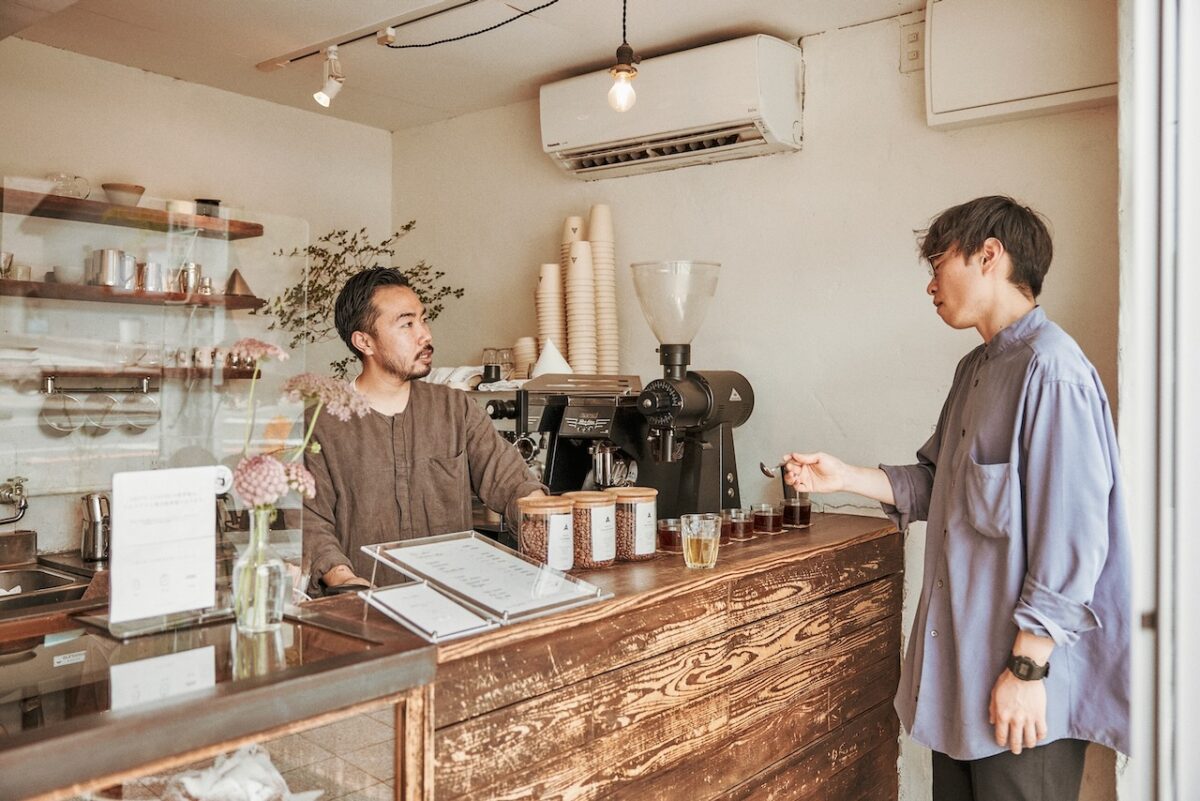
A store that wants to survive has to have the flexibility to adapt its policies. If you get involved with coffee making, you can take on any job. When hiring someone, Tanzawa, who is aware of this requirement, thinks about creating jobs and teams that suit the aptitudes and characteristics of his new staff. On the other hand, he does not forget to leave the necessary distance to take a serene look at the current situation in order to keep everyone happy.
“Just having fun is not a job and, on the other hand, you can’t be cool-headed all the time. These are the two poles between which you need to find a balance. Pragmatic thinking is necessary so that carelessness does not kill the dream. It’s easy to have momentary fun, but it’s difficult to stay happy. We haven’t set sales or profit targets, but without some sales and profits, everyone working at AKITO COFFEE wouldn’t get the leeway to enjoy life.”

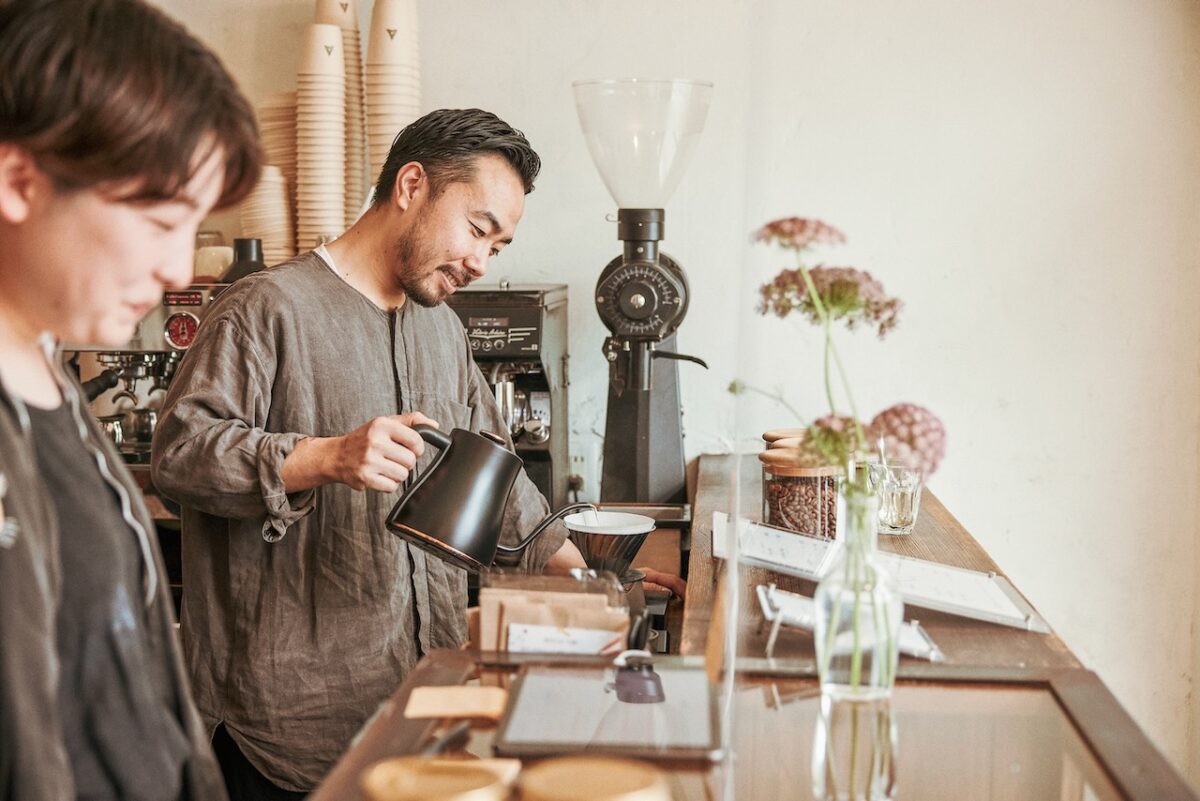
Having fun can be difficult
AKITO COFFEE doesn’t even have a vague blueprint, let alone a business plan. Tanzawa lives a detached life staying away from the perfectionist ideas that are pervasive in our world. It’s his quest for “seeds of happiness” that keeps him going.
“There is a lot of routine work in a coffee shop. If your daily life resembles that of someone working at a chain store on an assembly line, I think you will get bored and won’t last long. To avoid this trap, you need some fun. When thinking about fun things, various emotions and ideas come up. Doing what you like brings on discoveries and incentives that will fuel up your desire to keep going on.
At AKITO COFFEE we only hired a few people so that customers can remember their names. Each one of the staff is independent in the shop. They think of this job as their own so I think this strengthens their motivation. Their efforts are reflected in our sales profits which in turn increases their income. They can then use this money on things they like. Proof that we turned the dream into reality.”

When people grow older, the burden on their back gets heavier and they drift away from being happy in life. This should be even more true for a business owner. But even knowing that, Tanzawa continues his mission searching for ways to enjoy life.
“Whether you have a good or a bad day, I think it’s best to feel that life is fun from the moment you wake up to the time you go to bed. It’s extremely difficult for everyone to keep living in this state but someday it will become a reality. In any case, even if this day is still far away, it just means you still need some more training. In the end, I think that the driving force that helps people overcome hardships is happiness.”
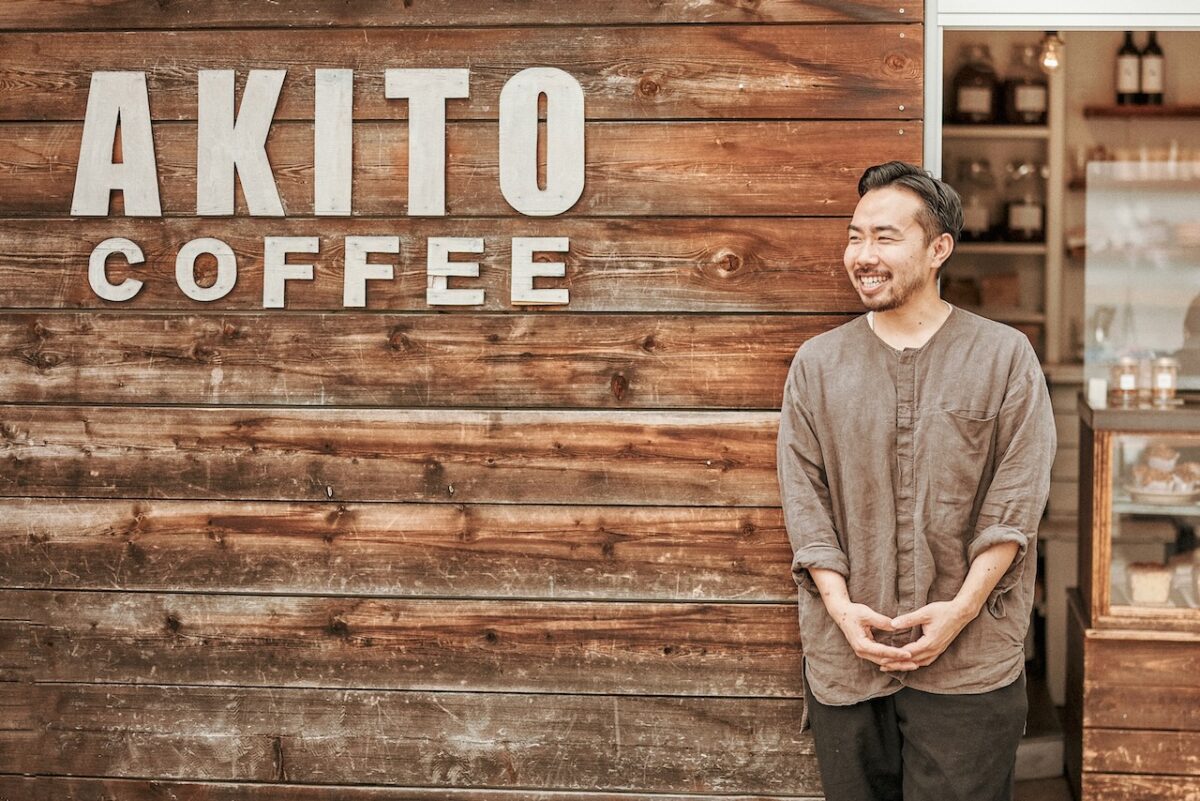
Now 32 years old, Tanzawa always seems unperturbed. An atmosphere of calm detachment surrounds him. It looks like he has undergone a 5-years meditation training deep in a mountain temple.
“The more I focus on coffee the more I become obstinate and I end up leaving my customers behind. I used to be just like that but I realized that the more I relax, the more my customers come back to enjoy my coffee. They made me realize that simplicity is good. I believe that since we are a local store, it is much more important for this shop to be a flexible all-rounder.
Think about it, I may have opened a shop earlier and with more ease than others but the fact that I have trained to do so does not change. The more someone self-trains the greater the freedom he will get. There is nothing that matches a wide range of expertise. But now that the shop is going to turn 9 years old, I somehow think that we are finally gradually finding our style.”
“How can I live happily?” This question seems to be shallow but its meaning is rather deep; it seems easy and is yet difficult. Tanzawa, who does not avoid the question, keeps walking the rugged path of his endless training journey.
Originally written in Japanese by KANA ISHIYAMA
Edited by Tatsuya Nakamichi
Photos by Kenichi Aikawa
Translated by Julien Butterlin

MY FAVORITE COFFEE
My favorite coffee is one that I can drink with nothing on my mind and makes me go, “This tastes good.” Like the coffee I have during a break after working on a farm. Roasters, including myself, should appreciate that simplicity of coffee because we tend to always use our head to evaluate coffee at work or at someone else’s coffee shops in our day-to-day lives.
